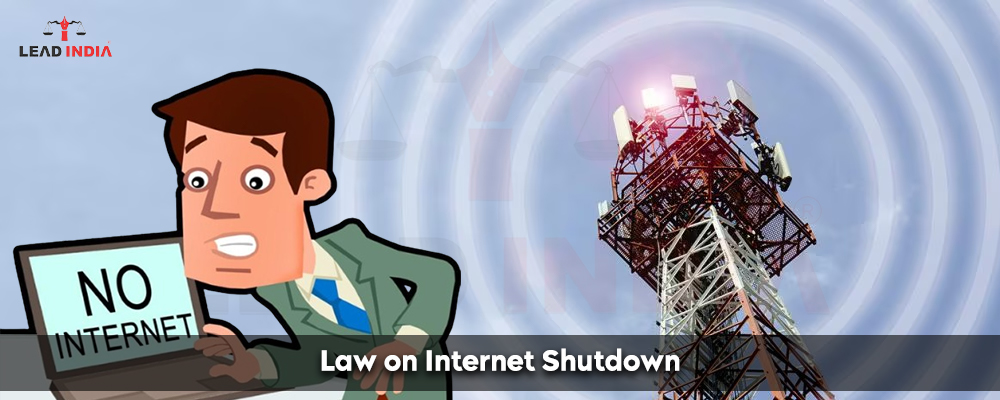Manipur is in the grip of a severe battle between the Meitei and Kuki-Zo groups. The Indian government enforced internet restrictions in Manipur to combat violence and misinformation.
The government’s plan to shut down the internet in the state on May 3, 2023, has now been in effect for more than 200 days, and netizens’ right to information remains in jeopardy. The failure to control and restrain violence has resulted in the distress of ordinary citizens.
On September 23, 2023, the Manipur government announced the return of full internet connectivity, citing “improved” law enforcement. This ended India’s second-longest internet outage, which had lasted over 143 days since May 3. Citizens were relieved by the news, from students preparing to return to Manipur to humanitarian workers scurrying for crucial supplies.
Need A Legal Advice
The internet is not a lawyer and neither are you. Talk to a real lawyer about your legal issue

Internet Shutdown
- Section 5(2) of the Indian Telegraph Act, 1885, in conjunction with the Temporary Suspension of Telecom Services (Public Emergency and Public Safety) Rules, 2017: These laws empower the union or state home secretary to suspend any telegraph service (including the internet) in the event of a public emergency or safety concern. Such an order must be examined by a committee within five days and cannot be extended beyond 15 days. In an emergency, an officer at the joint secretary level or higher, authorized by the union or the state home secretary, may make the order.
- Section 144 of the Code of Criminal Procedure allows district magistrates, sub-divisional magistrates, and other executive magistrates designated by the state government to issue orders to prevent or stop any annoyance or disturbance of public tranquility. Such orders may entail the suspension of internet services in a certain area for a set amount of time.
What are the ramifications of internet shutdowns?
- Internet shutdowns infringe fundamental rights under Articles 19(1)(a) and (g): According to the Supreme Court in the case of Anuradha Bhasin versus Union of India (2020), the freedom of speech and expression, as well as the freedom to practice any profession via the internet, are constitutionally protected under Articles 19(1)(a) and 19(1)(g).
- Economic consequences: Internet outages can have serious economic ramifications. Businesses that are on the internet for operations, sales, and communication may suffer financial losses. Startups and small firms could be especially vulnerable. According to Top10VPN, India lost Rs 2,091 crore ($255.2 million) in the first half of 2023 due to internet downtime.
- Disruption in Education: Many educational institutions employ online platforms for teaching and learning. Internet outages cause disruptions in access to educational resources, making it difficult for students to complete their studies.
- Concerns About Faith and Censorship: Internet shutdowns can weaken faith in the government and authorities. They can also raise worries about censorship and a lack of accountability.
- Impediment to Disaster Response: They have an impact on people’s communication and coordination, particularly during emergencies and crises. According to a UN-backed assessment, shutting down the internet has a negative impact on people’s safety and well-being, limiting information flow and humanitarian assistance.
- Disruption in Health Care: Studies have shown that shutdowns have a significant impact on health systems, including the mobilization of urgent medical care, the delivery of essential medicines and equipment maintenance, limiting the exchange of health information between medical personnel, and disrupting essential mental health assistance.
- International Repercussions: Internet shutdowns can get international notice and condemnation, potentially harming a country’s reputation and relationships with other countries.
- India has the world’s highest number of internet shutdowns. In the first half of 2023, India had the second most number of internet shutdowns worldwide.
- According to research by the US digital rights advocacy group Access Now, India accounted for 58% of all reported shutdowns worldwide.
- Impact on Journalism and Reporting: Journalists use the internet to report on events and share news with the public. Shutdowns can impair their ability to collect and disseminate information, jeopardizing the public’s right to know. The Supreme Court declared the right to a free press as a fundamental right in the instances of Indian Express vs Union of India (1986) and Bennett Coleman vs Union of India (1972).
Lead India offers free legal advice and online information, in addition to other legal services. We provide a forum for you to speak with a lawyer and ask legal questions. Lead India’s solicitors can help you with any legal difficulties. Lead India’s lawyers can help you with any legal matters. Lead India offers free online legal help in India. In addition to providing legal advice online, Lead India allows users to ask professionals questions for free.





 Talk to a Lawyer
Talk to a Lawyer